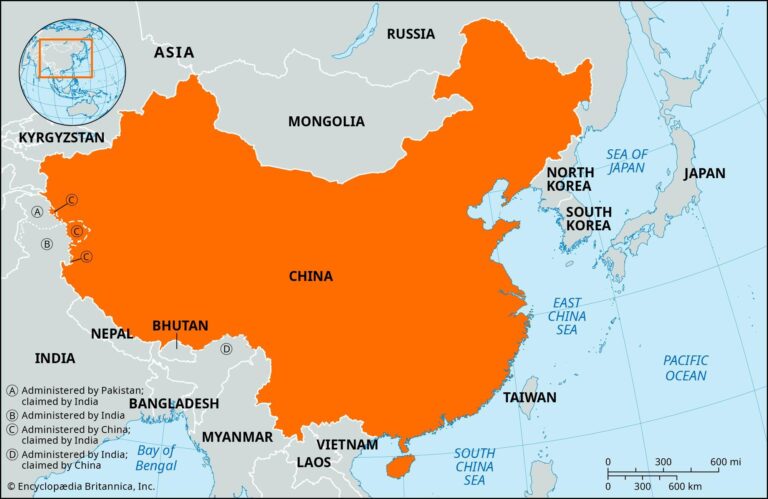In the latest diplomatic exchange escalating tensions between the United States and China, Beijing has issued a firm response to Senator Lindsey Graham’s recent warnings regarding Russia. The remarks, which spotlight concerns over Russia’s geopolitical maneuvers, have drawn a swift rebuttal from Chinese officials, underscoring the delicate balance of international relations amid ongoing global uncertainties. This article delves into the details of the confrontation, examining the implications for Sino-American relations and the broader geopolitical landscape.
China Condemns Lindsey Graham’s Russia Remarks Amid Rising Diplomatic Tensions
China has issued a strong rebuke of recent comments made by U.S. Senator Lindsey Graham regarding Russia, viewing them as provocative and detrimental to global stability. Beijing characterized the remarks as an unnecessary escalation that risks inflaming already heightened geopolitical tensions between major powers. Chinese officials emphasized the importance of dialogue and mutual respect, underscoring that disparaging language or threats undermine ongoing efforts to maintain peace and security in the international arena. The statement from China’s Ministry of Foreign Affairs called on Washington to reconsider its approach and prioritize diplomatic engagement over rhetoric.
Analysts suggest the incident reflects broader sensitivities in Sino-American relations, especially amid a complex web of contentious issues including trade disputes, Taiwan, and regional security. Key takeaways from China’s response include:
- Rejection of hostile rhetoric: Beijing stresses peaceful conflict resolution over antagonistic posturing.
- Call for restraint: Advocates for measured language to avoid unnecessary escalation.
- Diplomatic priorities: Focus on multilateral dialogue rather than unilateral threats.
| Country | Official Statement | Diplomatic Stance |
|---|---|---|
| China | Condemned inflammatory remarks | Promotes dialogue and diplomacy |
| USA | Senator Graham’s tough rhetoric | Focus on deterrence and pressure |
| Russia | No immediate response | Monitoring situation closely |
Analysis of Beijing’s Strategic Messaging and Its Implications for US-China Relations
Beijing’s communication strategy in response to recent US political statements, including Lindsey Graham’s Russia threat, reflects a calculated effort to project strength while emphasizing diplomatic caution. The Chinese government has skillfully balanced assertive rhetoric with measured messaging to appeal both domestically and on the global stage. This dual approach serves to reinforce China’s image as a decisive global actor unwilling to be bullied, even as it signals a preference for stability in US-China relations.
The implications for bilateral ties are multifaceted. On one hand, Beijing’s response underscores its growing confidence in shaping global narratives, pushing back against what it perceives as provocative language from certain US political figures. On the other, it reveals an underlying desire to avoid escalation that could imperil ongoing trade talks and cooperation on international issues such as climate change. Key dimensions to watch include:
- Diplomatic Messaging: Careful wording in official state media that conveys strength without overt hostility.
- Economic Signaling: Continued openness to negotiations despite political tensions.
- Geostrategic Posturing: Reinforcement of alliances in Asia and increased military transparency to deter further threats.
| Aspect | Beijing’s Approach | Potential US Impact |
|---|---|---|
| Political Rhetoric | Measured, strong yet controlled | Limits escalation, preserves negotiation channels |
| Trade Relations | Signals willingness to engage | Maintains economic interdependence |
| Military Posture | Visible but non-aggressive displays | Acts as deterrent without provoking conflict |
Experts Recommend De-escalation Measures to Prevent Further Strain in Global Diplomacy
Leading international relations specialists have urged immediate implementation of de-escalation strategies to curb rising tensions following provocative rhetoric exchanged between global powers. Analysts emphasize the importance of diplomatic dialogue, stressing that reactive posturing risks exacerbating conflicts and destabilizing fragile alliances. Among the recommended measures are:
- Establishment of reliable communication channels to prevent misunderstandings
- Mutually agreed frameworks for conflict resolution and negotiation
- Third-party mediation by neutral international organizations
- Reduction of inflammatory public statements to ease geopolitical anxiety
Concrete frameworks have also been proposed to guide governments in managing sensitive interactions. The table below highlights key components of a proposed de-escalation protocol designed to reinforce transparency and trust:
| Protocol Element | Description | Expected Outcome |
|---|---|---|
| Early Warning System | Real-time alerts for potential crises | Rapid response to emerging threats |
| Joint Fact-Finding | Collaborative investigation of disputes | Objective basis for negotiations |
| Code of Conduct | Agreed guidelines for diplomatic engagement | Minimized provocative acts |
| Confidence-Building Measures | Regular information sharing and transparency | Enhanced mutual trust |
Key Takeaways
As tensions continue to escalate between the United States and Russia, China’s measured response to Senator Lindsey Graham’s recent threats underscores Beijing’s cautious approach amid the complex geopolitical landscape. While China urges restraint and dialogue, the international community watches closely how these developments will shape the balance of power moving forward. The situation remains fluid, with all eyes on diplomatic channels to prevent further escalation.




